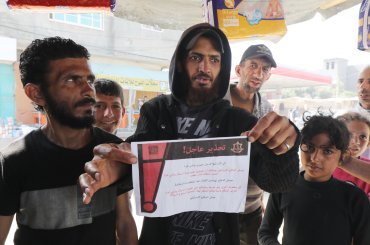Muhammad Idrees Ahmad writes:
The comments by Gabriel of JSF are based on a strawman argument… The debate is not divided as neatly between those supporting
the struggle in the streets of Tehran and others supporting their repression. The
struggle has been to support the demands for expanded freedoms of one
without prejudicing the democratic rights of the others. That is to
say, to support the emancipatory struggle of the protesters, which in
its essence is a civil rights struggle, while respecting the democratic
choice of the majority, which may indeed be Ahmadinejad.
Here is what I wrote in an introduction to an earlier post ("The Bomb-Iran contingent's newfound concern for the Iranian people"):
Let me once again make my position on the protests clear: I
wholeheartedly support them to the extent that they are engaged in an
emancipatory struggle to expand their rights and freedoms; I also
support their call for transparency, and I absolutely condemn the
despicable police brutality being unleashed against them. But that
doesn’t mean I would accept the disenfranchisement of the millions who
voted for Ahmadinejad just because they can’t Twitter or speak English.
Here's my demurral. Great movements are minority movements. The movement of the Jews to liberate their people from the Israel lobby is being led by a minority of Jews. Solidarity in Poland was also a minority. Anti-slavery in the U.S.–a minority. Minorities spearhead popular movements. It's one thing to question the election in Iran, as we questioned the 2000 American election, and another to support an insurgent movement because it stands for great principles, like, Don't flog bloggers.
I agree. And that is why I support the protests as a civil rights
struggle. And that should be crucial distinction: whether to think of
this as a battle over a stolen election, in which case the protesters
are on shakier ground, or to see this as an emancipatory struggle for
civil rights and expanded freedoms, in which case not only would they
not be encroaching on the demcratic rights of others (hence avoiding
the dangers of polarization), they may indeed bring many Ahmadinejad
supporters on their side. Because according to the New America
Foundation/TFT poll, the majority (supporters of both candidates) not
only supported reforms in general, they also wanted curbs on clerical
authority (they wanted the position of supreme leader subject to a
democratic vote, rather than selection).
One other thing. Supporting Ahmadinejad has become a cover for some on the left for bashing Israel, attacking the lobby, criticizing the role of Jewish power in the American establishment. I think that's dangerous.

